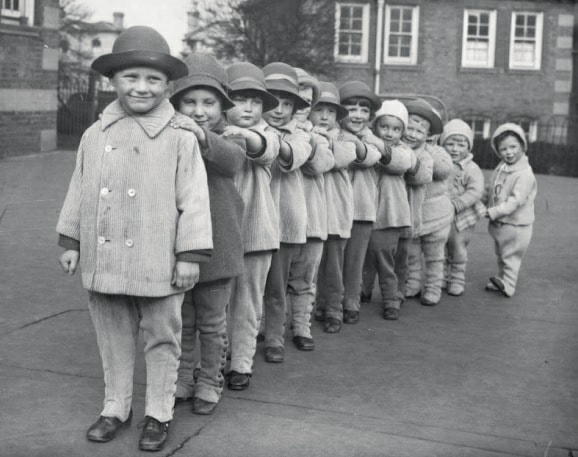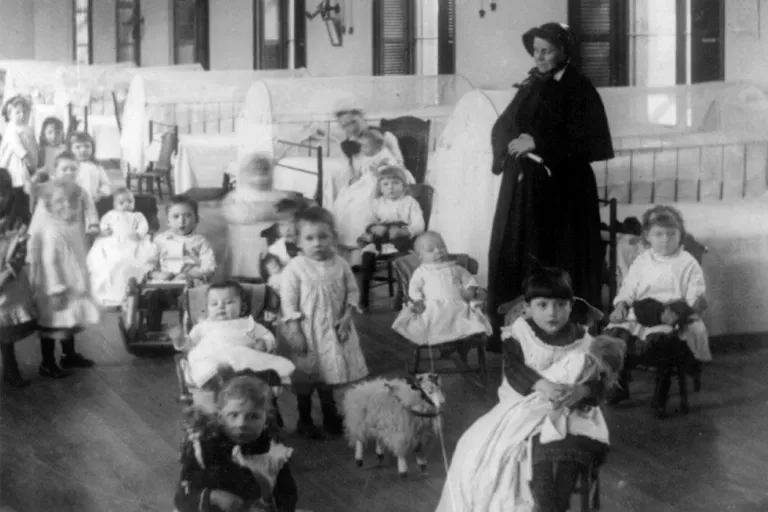
Orphanages in England have a complicated and multifaceted history, reflecting changing cultural attitudes regarding children, poverty, and welfare over time. The concept of orphanages, or institutions dedicated to caring for orphaned or abandoned children, has developed greatly over time, impacted by shifting cultural, religious, and political circumstances.
From the Middle Ages to the present, the method to caring for orphaned children has evolved significantly, reflecting shifts in philosophies, legislation, and practices.
During the Middle Ages, orphan care was often the responsibility of religious institutions, particularly monasteries and convents. These institutions provided basic care and shelter for orphaned children, along with education and religious instruction. However, the care provided in these settings varied widely depending on the resources and priorities of the specific institution.
The dissolution of the monasteries under Henry VIII in the 16th century disrupted the traditional system of orphan care in England. With the closure of religious houses, many orphaned children were left without support, leading to increased poverty and social unrest. In response, some local communities established charitable institutions to provide for orphaned and abandoned children.
These early orphanages were often run by local authorities, churches, or private benefactors and relied heavily on charitable donations and volunteer support.The 18th and 19th centuries witnessed significant developments in the provision of care for orphaned and destitute children in England. The Industrial Revolution brought about profound social and economic changes, leading to widespread urbanization, poverty, and child labor.
As families migrated to cities in search of work, many children were left orphaned or abandoned, prompting concerns about their welfare and future prospects.Philanthropists, social reformers, and religious organizations played a key role in advocating for improved conditions for orphaned and destitute children during this period.
One notable figure was Thomas Coram, who founded the Foundling Hospital in London in 1739. The Foundling Hospital was one of the first institutions in England dedicated to the care and education of abandoned children.
It provided shelter, food, clothing, and education for thousands of children, relying on donations from wealthy benefactors and the support of prominent figures such as Handel, who donated proceeds from benefit concerts to the hospital.
The Victorian era saw a proliferation of charitable organizations and institutions dedicated to the care of orphaned and vulnerable children. The rise of philanthropy and humanitarianism, coupled with growing public awareness of social issues, led to increased efforts to address the plight of disadvantaged children.
Organizations such as Dr. Barnardo’s and the Salvation Army played a significant role in providing shelter, education, and vocational training for orphaned and destitute children across England.
The Victorian era also witnessed the emergence of the “workhouse” system, which provided accommodation and employment for the poor and destitute, including orphaned children.
However, workhouses were often harsh and punitive environments, and their treatment of inmates, especially children, was widely criticized. Despite their shortcomings, workhouses remained a significant feature of the social welfare system until the early 20th century.

The early 20th century saw the development of the modern welfare state in Britain, with the introduction of legislation aimed at improving the health, education, and welfare of all citizens, including orphaned and vulnerable children.
The Children Act of 1908 established the premise that the child’s wellbeing should be the top priority in any decision affecting them, establishing the groundwork for modern child welfare policy in Britain.
Throughout the twentieth century, the function of orphanages increasingly diminished as the emphasis turned to foster care, adoption, and family-based support services. Concerns over institutionalizing children and the necessity of family-based care for their emotional and psychological well-being prompted the closing of large-scale residential institutions.
Today, orphanages in England are rare, and the focus is on providing support and services to children within the context of family-based care. Government agencies, charities, and voluntary organizations work together to provide a range of support services for vulnerable children and families, including foster care, adoption, counseling, and financial assistance.
The history of orphanages in England demonstrates changes in social welfare policy and practice, ranging from religious institutions providing basic care and shelter to modern child welfare programs.
While orphanages once played an important role in providing for orphaned and underprivileged children, the emphasis now is on assisting children in the framework of family-based care while also encouraging their well-being and development.

















